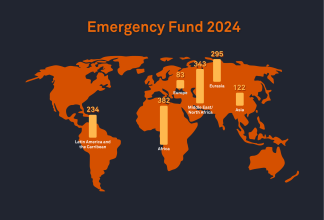Bill on High Treason Passed by Parliament
It only took a couple of minutes for the Russian Parliament to approve the controversial high treason bill, in its third and final reading, on 23 October 2012. The bill presents a fundamental threat to human rights in the country. The legislation is now awaiting approval in the Upper House before it is delivered to the President for signing.
The bill broadens the definition of high treason to include not only actions undermining the country’s external security, but also any activity that compromises the internal security, constitutional order, state or territorial integrity of Russia.
”The vagueness of the law puts anyone who is reporting on human rights or other topics critical of the government, at risk of being accused of treason. We urge the members of the Upper House and President Putin to restrain from further approving the legislation because of its grave implications on fundamental human rights in the country” says Joanna Kurosz, Programme Director for Eastern Europe and Central Asia at Civil Rights Defenders.
Highly criticized by local and international human rights organisations, the legislation is condemned as Vladimir Putin’s wider crackdown on dissent as it specifically concerns the work of international organisations that are granting “financial, technical, consulting or other help.”
The vague language of the legislation suggests that any offence, occurring after coming in contact with a representative of a foreign-funded non-governmental organisation (NGO), will be considered high treason. The list of those who can be charged under the new law has been also broadened to include anyone who spreads information that can constitute a national secret – regardless of the person’s awareness of the fact that the information can be regarded as a national secret or the intent to cause harm by spreading it.


